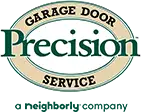Ensuring Maximum Security: The Crucial Role of Commercial Security Gate Maintenance
In today's world, security is a paramount concern for both residential and commercial properties.
_Approximately 55% of burglaries are forced entries, with security gates and barriers being a significant deterrent. Properties that lack adequate security measures, such as security gates, are three times more likely to be targeted by burglars and vandals._
The first line of defense for any establishment often lies in its access points, with gates playing a pivotal role. However, gates are only as secure as their maintenance regime. Effective gate maintenance not only ensures optimal performance but also extends the lifespan of the gate and its components. Let’s dive into the importance of regular gate maintenance, providing expert tips to ensure secure access to your property.

Why Regular Maintenance is Critical for Your Commercial Security Gate
Gates are your first line of defense against unauthorized access. However, if they are not maintained regularly, they can quickly become a weak link, compromising your property’s safety.
Also, environmental factors, wear and tear, and even tampering can affect the performance of gates. Regular maintenance ensures that any potential issues are identified and rectified before they become significant problems, ensuring both security and safety.
Key Reasons for Routine Gate Maintenance
- Preventing Security Breaches: A poorly maintained gate may fail to close properly or can be forced open, creating a vulnerability that intruders could exploit. A well-maintained gate ensures complete closure.
- Ensuring Durability: Regular upkeep can significantly extend the life of gates and gate operators, reducing the need for costly replacements.
- Maintaining Compliance: Many regions require gates to comply with safety and building codes. Regular maintenance ensures adherence to these regulations, avoiding potential fines or penalties.
- Minimizing Costs: Regular inspections can prevent minor issues from escalating into major repairs, saving time and money in the long term.
Your Essential Checklist for Commerical Gate Maintenance
A structured maintenance schedule is essential for maximizing the security and longevity of gates. Here is a checklist to guide you:
1. Visual Inspection
A thorough visual inspection is the first step in gate maintenance. It includes:
- Check for Physical Damage: Look for signs of rust, corrosion, cracks, or any structural damage to the gate and its components.
- Inspect Hinges and Joints: These areas are particularly susceptible to wear and tear. Ensure they are well-lubricated and free of rust or damage.
- Evaluate Gate Alignment: Misalignment can cause gates to drag or fail to close properly, compromising security. Ensure the gate opens and closes smoothly.
- Solar Panels: If your gate is solar-powered, inspect the solar panels for obvious signs of damage.
2. Mechanical and Electrical Component Testing
For automatic gates, electrical and mechanical components require regular testing and maintenance:
- Test Gate Operator Functionality: Check the motor, control boards, and other electronic components for signs of malfunction. Ensure all parts are clean and functioning efficiently.
- Inspect Safety Sensors and Detectors: Ensure all safety sensors, such as infrared beams and pressure detectors, are in working order to prevent accidents.
- Check for Wiring Issues: Exposed or damaged wiring can lead to short circuits or malfunctions. Inspect all wiring for wear, corrosion, or damage.
3. Lubrication and Cleaning
Proper lubrication and cleaning are vital to prevent wear and tear:
- Lubricate Moving Parts: Hinges, rollers, chains, and bearings should be regularly lubricated to ensure smooth operation and to prevent rust.
- Clean Gate Tracks: For sliding gates, the tracks should be free of debris, leaves, and dirt to ensure smooth operation and prevent mechanical damage.
4. Regular Testing of Security Features
Security features need to be tested regularly to ensure they are functioning correctly:
- Test Locking Mechanisms: Ensure all locks, latches, and bolts are secure and functioning properly.
- Check Access Control Systems: If your gate is integrated with an access control system, such as keypads, card readers, or intercoms, test them to ensure they are operational and secure.
5. Routine Professional Inspections
While regular self-maintenance is crucial, periodic professional inspections by certified technicians are indispensable:
- Schedule Annual Inspections: Professionals can identify and fix issues that may not be visible to the untrained eye. Consider scheduling a consultation with a certified gate technician to ensure your gate system meets all safety and compliance standards.
- Compliance and Safety Audits: Professional inspections ensure that your gate meets all safety and compliance standards.
Common Gate Maintenance Issues and Solutions
Understanding the common issues that arise with gate maintenance can help in proactive problem-solving:
1. Rust and Corrosion
Problem: Rust and corrosion are common, especially in metal gates exposed to the elements.
Solution: Regular cleaning and applying a protective coat of paint or rust inhibitor can prevent corrosion.
2. Gate Misalignment
Problem: Misalignment can occur due to ground settling, improper installation, or wear.
Solution: Adjust hinges or tracks and ensure the gate is balanced. Professional adjustment may be required for severe cases.
3. Malfunctioning Gate Operators
Problem: Electrical or mechanical failures in automatic gate operators.
Solution: Regular testing, maintenance, and timely replacement of worn-out parts are crucial. Ensure the power supply is stable and secure.
4. Sensor and Safety Device Failures
Problem: Dirt, debris, or misalignment can cause sensors to malfunction.
Solution: Regularly clean sensors and check their alignment. Replace malfunctioning sensors promptly.
Importance of Using High-Quality Parts and Components
The quality of parts and components used in gate systems plays a crucial role in their longevity and performance:
- Invest in Quality Hardware: High-quality hinges, rollers, and bolts are less likely to fail or corrode.
- Choose Durable Gate Materials: Depending on the environment, materials like galvanized steel, aluminum, treated wood, or iron gates may provide better durability.
Integrating Modern Technology for Enhanced Gate Security
Modern technology offers advanced solutions to further enhance the security and functionality of gates:
- Smart Access Control Systems: Integrate your gate with smart systems that offer remote access, real-time monitoring, and alerts.
- Automated Gate Monitoring: Use devices to monitor gate health and functionality continuously, allowing for predictive maintenance.
- Advanced Security Cameras: Incorporate security cameras that can detect unusual activity and send alerts.
Don’t Let a Neglected Gate Be The Reason for a Security Breach
Effective gate maintenance is a critical component of property security. By establishing a regular maintenance schedule, inspecting all components, and addressing issues promptly, property owners can ensure that their gates function reliably and securely. Investing in high-quality parts, leveraging modern technology, and involving professionals in periodic inspections are essential steps to maximize both security and longevity. Make commercial security gate maintenance a priority and protect your business against threats.

